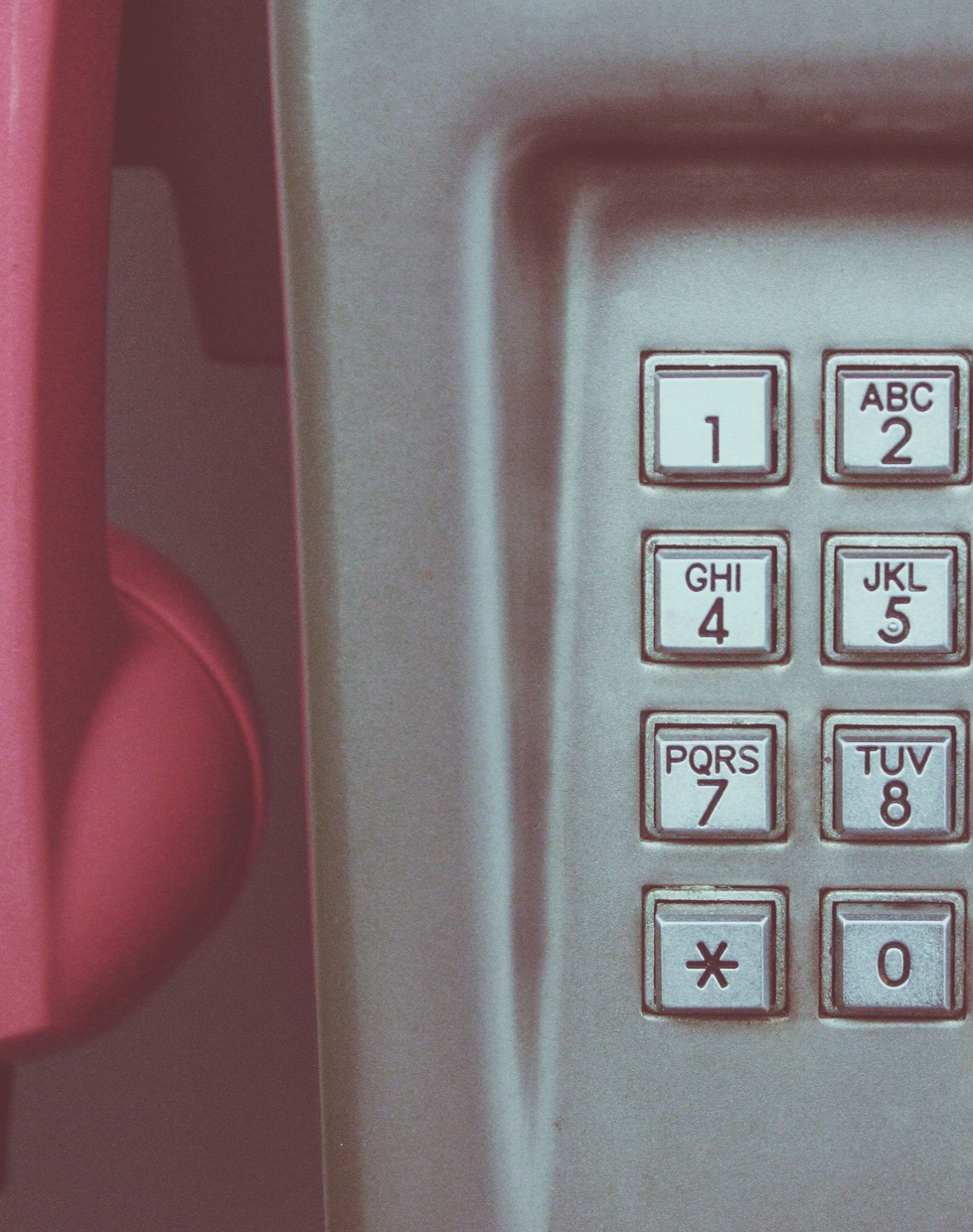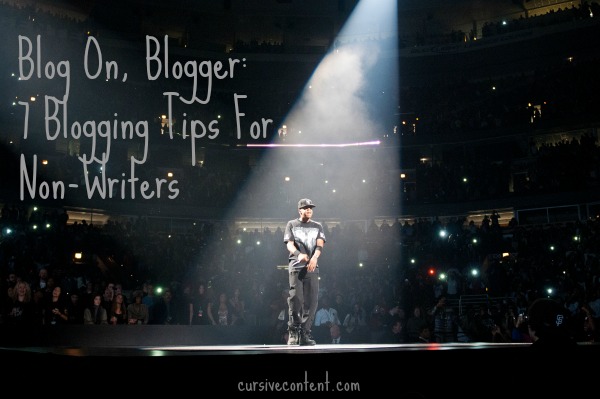Blog on, blogger: 7 blogging tips for non-writers
For those who don’t consider themselves writers, perhaps one of the most daunting things about having a blog is the actual blogging part. You know, that part where you have to write something. Something that you want people to want to read. On a regular basis. If you aren’t a writer, it’s hard to know where to start (and when to stop).
But you’ve deemed blogging as important for your company (and you’re right). The good news is, you don’t need to be the Jay-Z of writing in order to write a blog. Here’s a few blogging tips for all you non-writers out there.
Start with strategy.
There will be days where blogging is an arduous task (yes, this feeling comes to even the most seasoned writers). The best way to ensure that you succeed on the good days and the bad is to be guided by strategy. Just like you wouldn’t set out on a road trip without knowing how to get to your destination, you shouldn’t start a blog without a plan. The strategy is your road map that will ensure that you never drive too far in the wrong direction.
Set the tone.
The tone you take should depend on your brand, your audience and your subject matter. If you have a very corporate presence, your audience is CEOs and your subject matter is serious, your writing should reflect that. If your brand is smaller and more personal, you should write that way, too. The wrong tone can completely alienate your audience and diminish your brand in the eyes of your consumer. There is no general right or wrong here, but you should be absolutely clear on the tone you’ll take before you start tapping away at that keyboard. This is another good reason to start with strategy, because it will help define the tone. Regardless of tone, your grammar and punctuation should always be professional. Pls don’t write like ur txtng ur friends.
Fulfill a need.
Choose your topics wisely, based on what you know about your consumer, what’s going on in your marketplace and what fits with your products/services. Your blog shouldn’t be self-serving, so you should start by thinking about what your customer wants. Think about common questions you hear, pieces of information that you often have to clarify, trends you think your consumer should be educated on. By writing about these things, you become more useful to your customer, and your blog becomes a respected resource. These topics should ultimately tie back to your products or services, but in a subtle way. The goal of your blog writing isn’t usually to sell, sell, sell. It’s to give, give, give. Here’s where you need to have trust in content marketing— that if you give, you will receive.
Think first, write later.
Let me tell you something about writer’s block. It’s a real thing. If you sit down at the computer without a clue what you’re going to write about, you have a huge chance of clamming up. Before you know it, you’ll be browsing Facebook and reading Huffington Post articles on celebrities you didn’t even know you cared about (ahem…not that I ever do this…). If you know you have to write, the best thing you can do for yourself is start thinking about it in advance. Head into meetings with your ears perked for any topics that might make good posts. Read industry newsletters and see if something catches your attention. Jot notes to yourself. That way, when you actually sit down to write, you’ll know what you want to write about and the points you want to make.
Consider the angle.
You have the ability to make dry subjects more intriguing based on the angle you take. Even if it’s something that’s been written about thousands of times, do you have an approach to the topic that will make it feel new? Consider our top posts of 2013, which included “The Anthropologie of fabulous content marketing” and “Six ways content marketing is like hosting Thanksgiving dinner”. These unique takes on our topic helped them feel fresh and new— and attracted the attention of our audience. The flip side of this is content curation. Although it isn’t about creating original content, it allows you to compile existing content into one unique, easily digestible post that provides a ton of great information for your audience.
Call for back up if you need to.
The truth is, writing something worth reading can be time consuming and you might not always have time. It’s ok to rely on others— whether it be a co-worker, agency or freelancer— to support your blogging efforts. Whether you need help generating ideas, editing or writing, it’s ok to phone a friend. Again, your strategy can give you peace of mind in this situation, because there will be a clear definition of the important details someone else needs to know when they write for your blog. Whether you do this occasionally or on a regular basis, splitting up the duties can lighten the load, giving you a larger chance of being successful.
Don’t be afraid to mess up.
Not every post you write is going to be a home run. If you’re not used to writing, you’ll probably need a little extra time to get comfortable blogging. That’s ok. Write anyway. Don’t let indecision paralyze you. Look back at what’s worked and what hasn’t, learn from your mistakes and move on. It’s a blog eat blog world out there, and if you fall silent for too long, your blog will be a distant memory in the minds of your audience. Keep writing, stick to the strategy and it will all pay off.
Whether you consider yourself a writer or not, you can share your thoughts with the world and create a successful blog that people want to read. So blog on with your bad self.
MORE ARTICLES
-
 What Is Your Private School’s Bold & Unifying Big Promise?
What Is Your Private School’s Bold & Unifying Big Promise? -
 Viewbook Best Practices for Private Schools
Viewbook Best Practices for Private Schools -
 AI Writing Prompts to Power Private School Storytelling
AI Writing Prompts to Power Private School Storytelling -
 When to Outsource Your Private School Content Marketing to an Expert
When to Outsource Your Private School Content Marketing to an Expert -
 How to Write a Magnetic Private School “About” Page
How to Write a Magnetic Private School “About” Page -
 The Ultimate Call-to-Action for Every Private School Marketing Situation
The Ultimate Call-to-Action for Every Private School Marketing Situation -
 3 Unique Ways to Attract Dream Families with Content
3 Unique Ways to Attract Dream Families with Content -
 How to Write a Compelling School Magazine Article People Want to Read
How to Write a Compelling School Magazine Article People Want to Read
